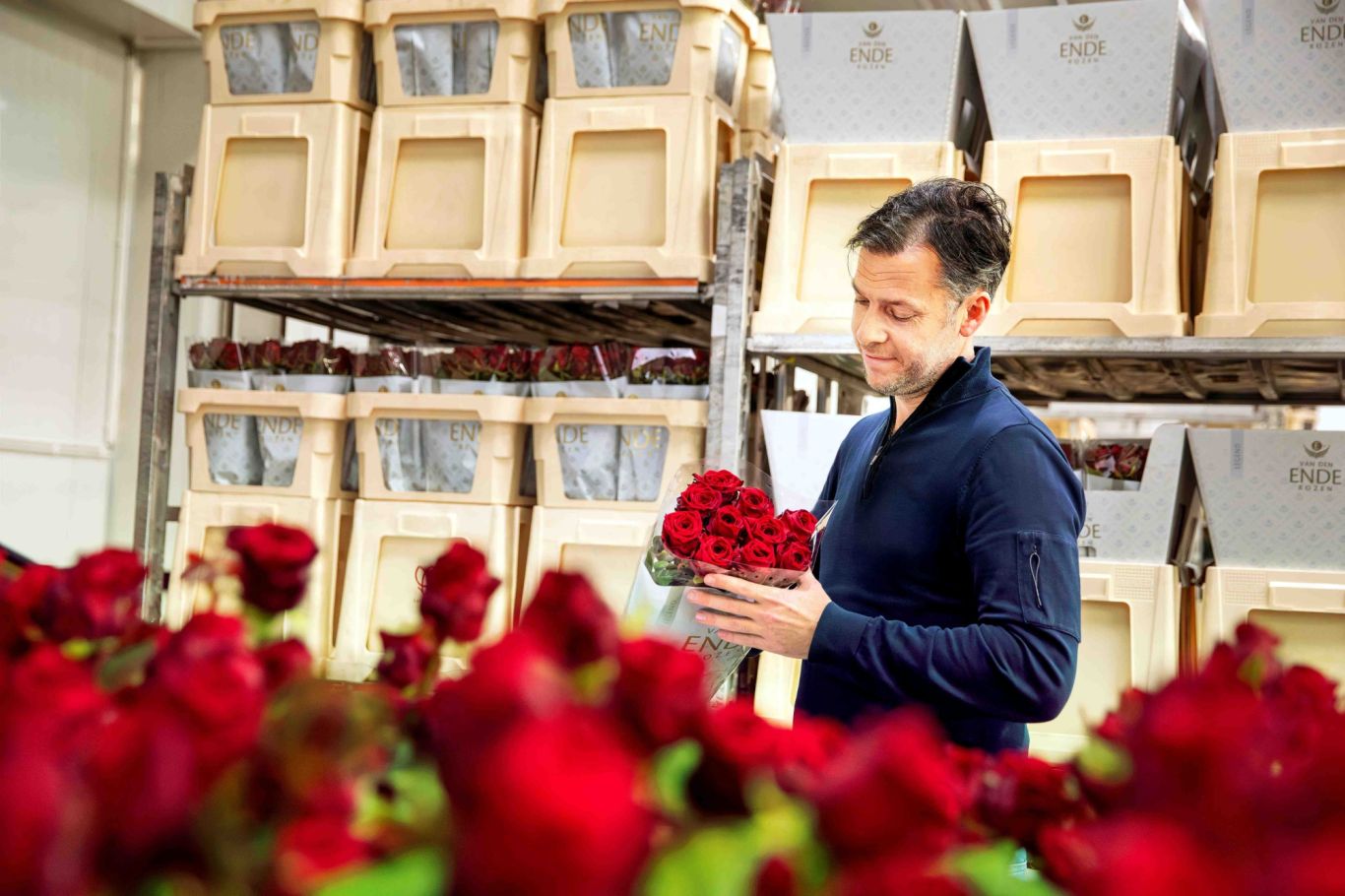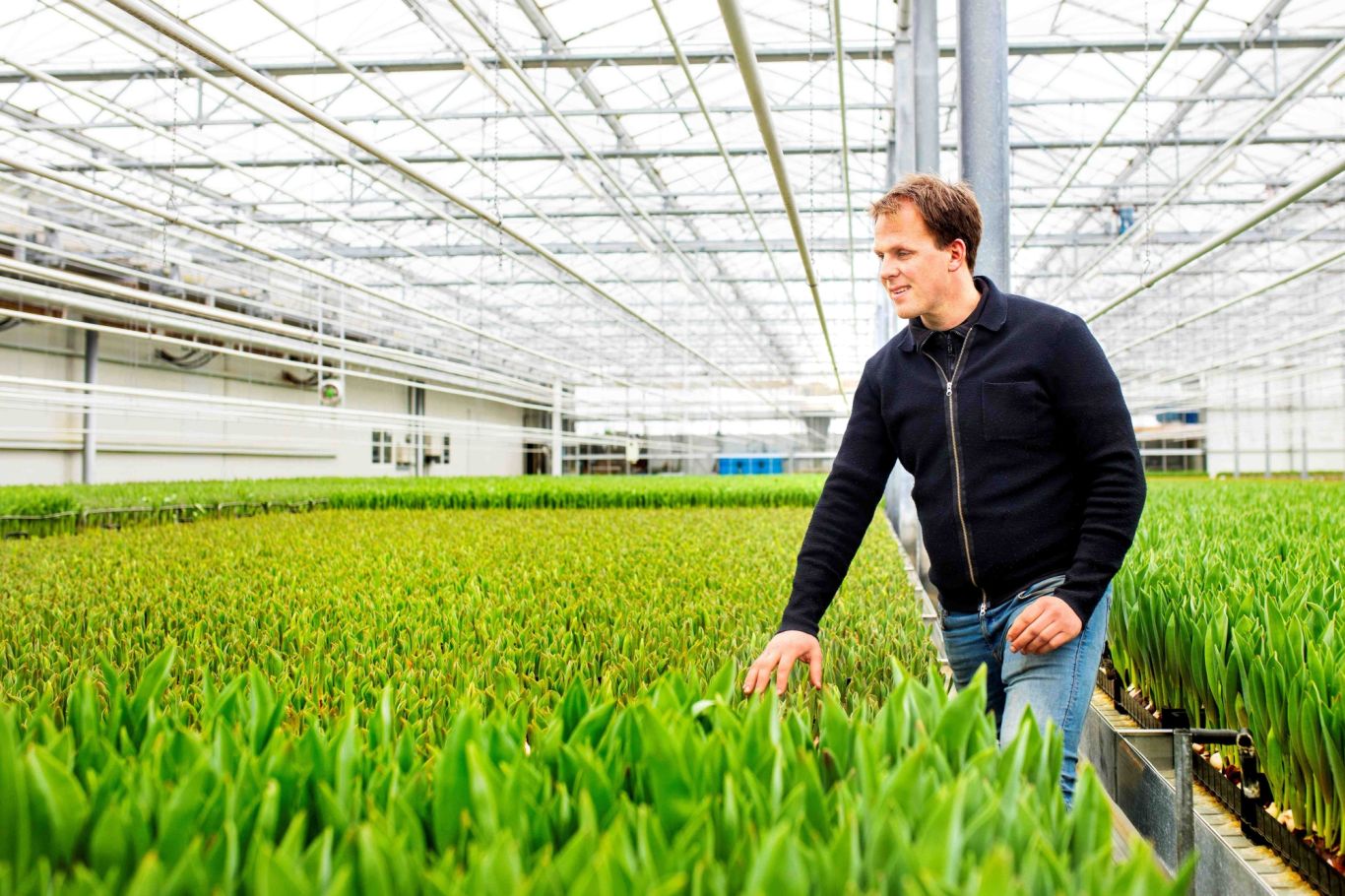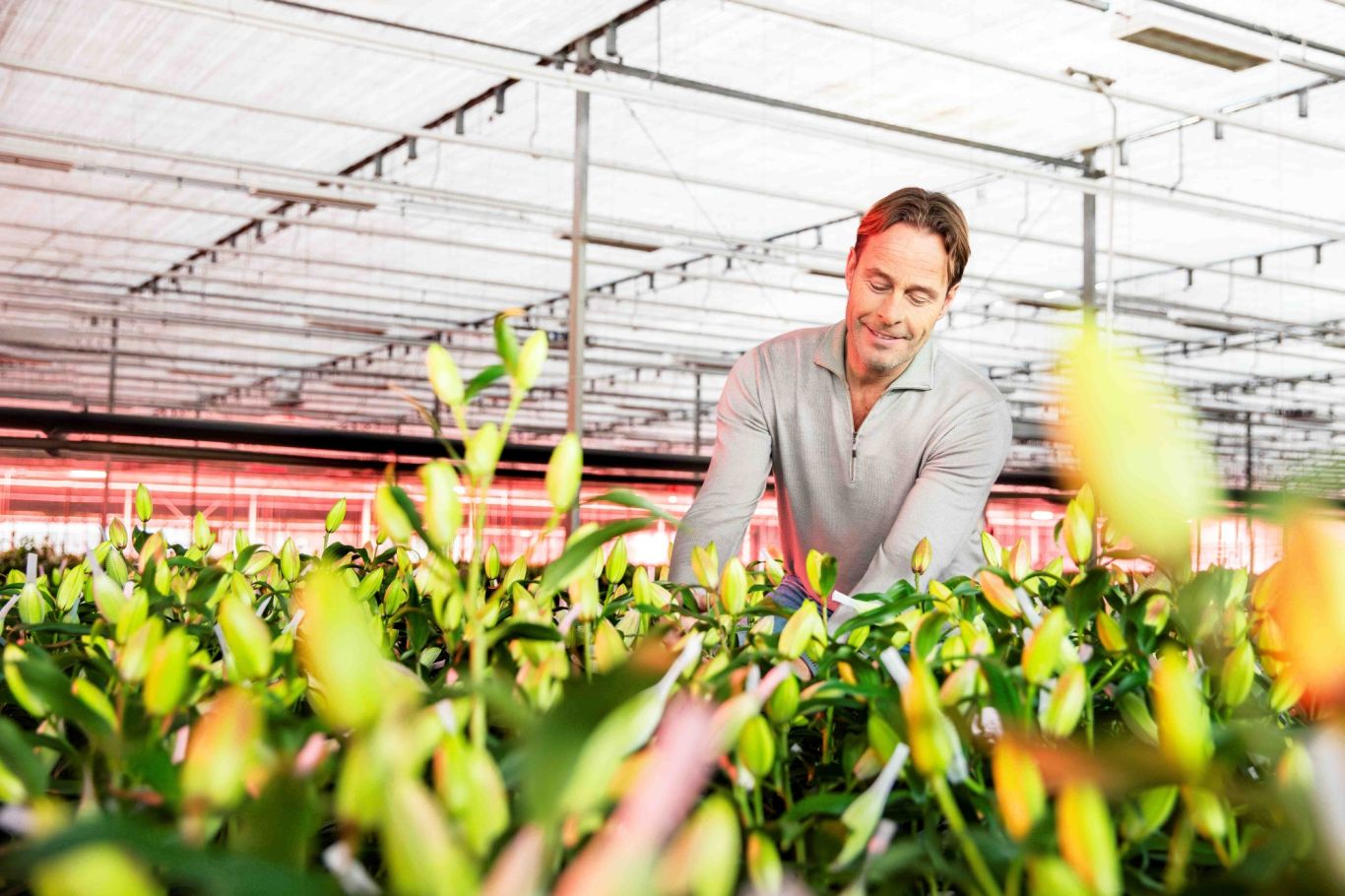‘Certification is a big step, but once you get started, it's not so bad.’ Arnout van Arendonk, Van Arendonk Bakker
August 20, 2024

Last month, the FSI (Floriculture Sustainability Initiative) board established the definition of ‘small-scale grower’ for the ‘Global North,’ and the revised certification scheme is currently being developed. At Royal FloraHolland, we are keen to highlight different perspectives on this topic. That is why we are giving Van Arendonk Bakker the floor today. This nursery falls under the definition of “small-scale grower” but has already been certified. Van Arendonk Bakker is a nursery that grows lilies under glass, which are available annually from May to early November. As a nursery, they are FSI-compliant and hold GLOBALG.A.P-IDA and GLOBALG.A.P IFA Flowers & Ornamentals certificates. We spoke with Arnout van Arendonk, director, about his experience with certification.
'We started certification last year. We have already taken it up because of the expected demand from buyers. Some buyers will no longer want to or be able to buy from you at some point, especially larger parties, if you do not have the right certificates. That is a shame, of course, because you want to be able to serve the entire market. So if you can expand your market with certification, the decision is easy.
In addition, we all have to arrange that certification; the entire sector has to move in that direction. I understand that it is quite drastic for small nurseries; it is an expense and it takes time. And it comes back every year in the form of the audit. Fortunately for us, as a small-scale nursery, it didn't take too much time the first time around. Initially, it took a lot of time, as we weren't sure where to start. You choose a certificate, but then you have another system to register with and you need another organisation to do the audit. That was very unclear to us. With the help of a sustainability consultant, it became a lot easier. She told us which certification we needed to be in a good position for the future. Because once you get started, it's better to do it right the first time. That way, you're good to go for the time being.
In the process, it does matter how your company is doing. Of course, you already keep track of some of the data you need. For certification, for example, you have to keep cultivation records, but we already do that for arable farming and outdoor lily cultivation. So it's very easy to add the greenhouse to that.
Because we enlisted help, it was sorted within a few days instead of a few weeks. The sustainability advisor took a large part of the work off our hands. It's mainly a lot of standard things that you have to write down, all of which you already apply in your own company. Most of it isn't complicated, it just takes time. Of course, an advisor like that costs money, but you can work out whether it's worth it for you.
The main advantage of certification is that it gives you insight. For example, the safety rules for staff, who the emergency response team members are and what to do in an emergency. And for cultivation, I also find it very easy to look back in your records to see exactly what you did and when. For us, the biggest motivation for certification is to remain relevant in the market and to maintain and increase sales opportunities. To other companies, I would like to say that I understand it is a big step, but once you get started, it's not so bad.
Find more information about certification here.
-
Did you find this interesting?
Then share this article


